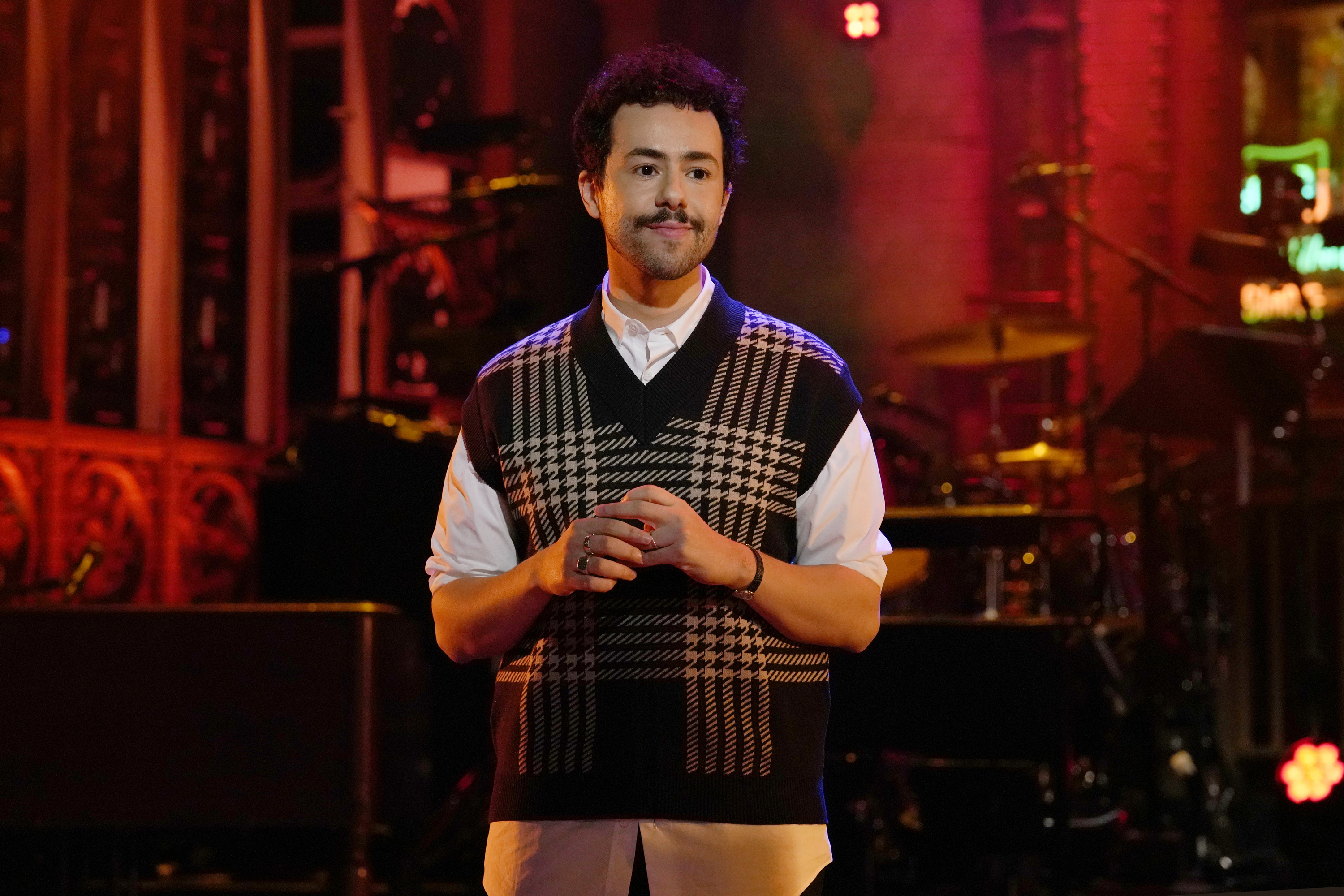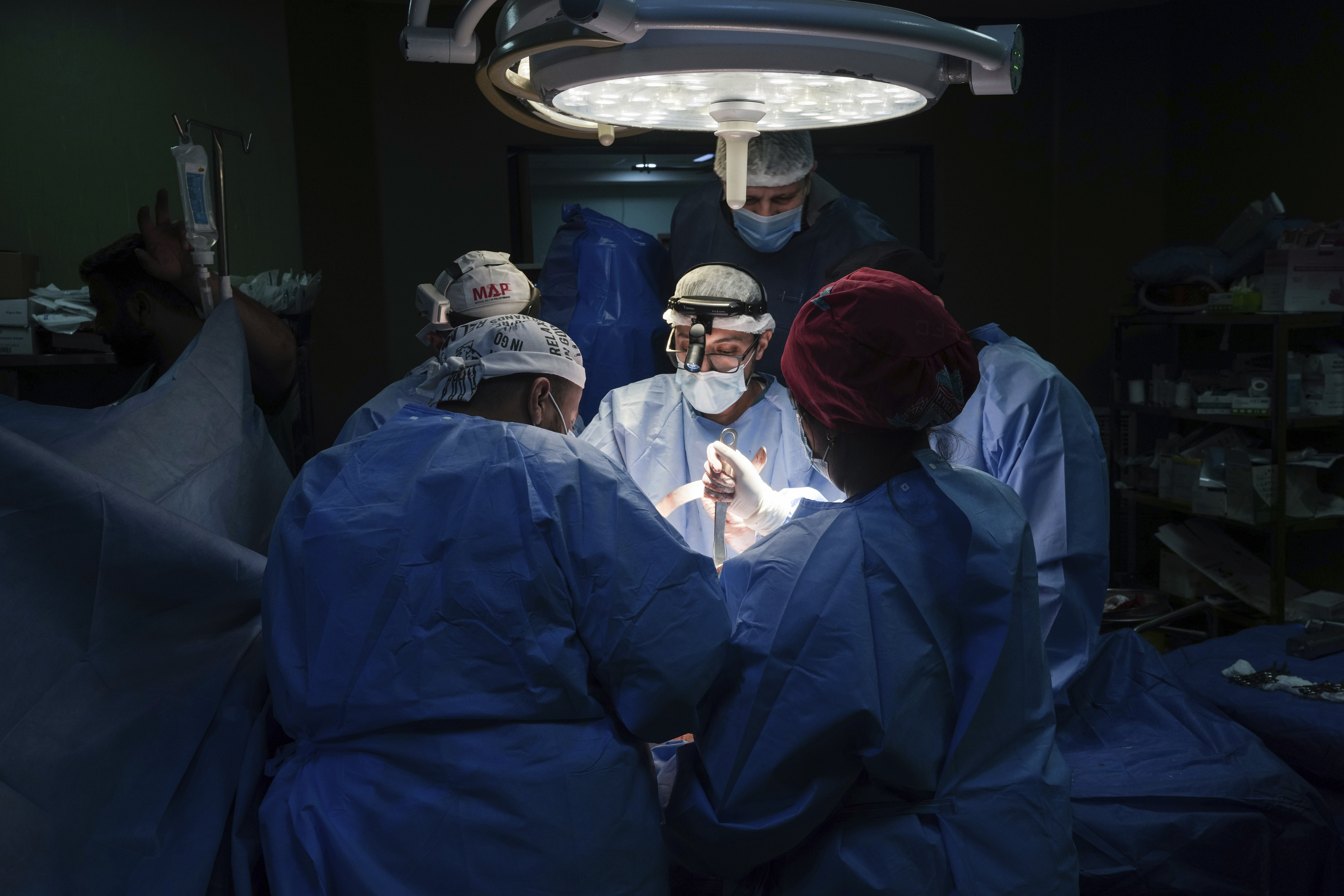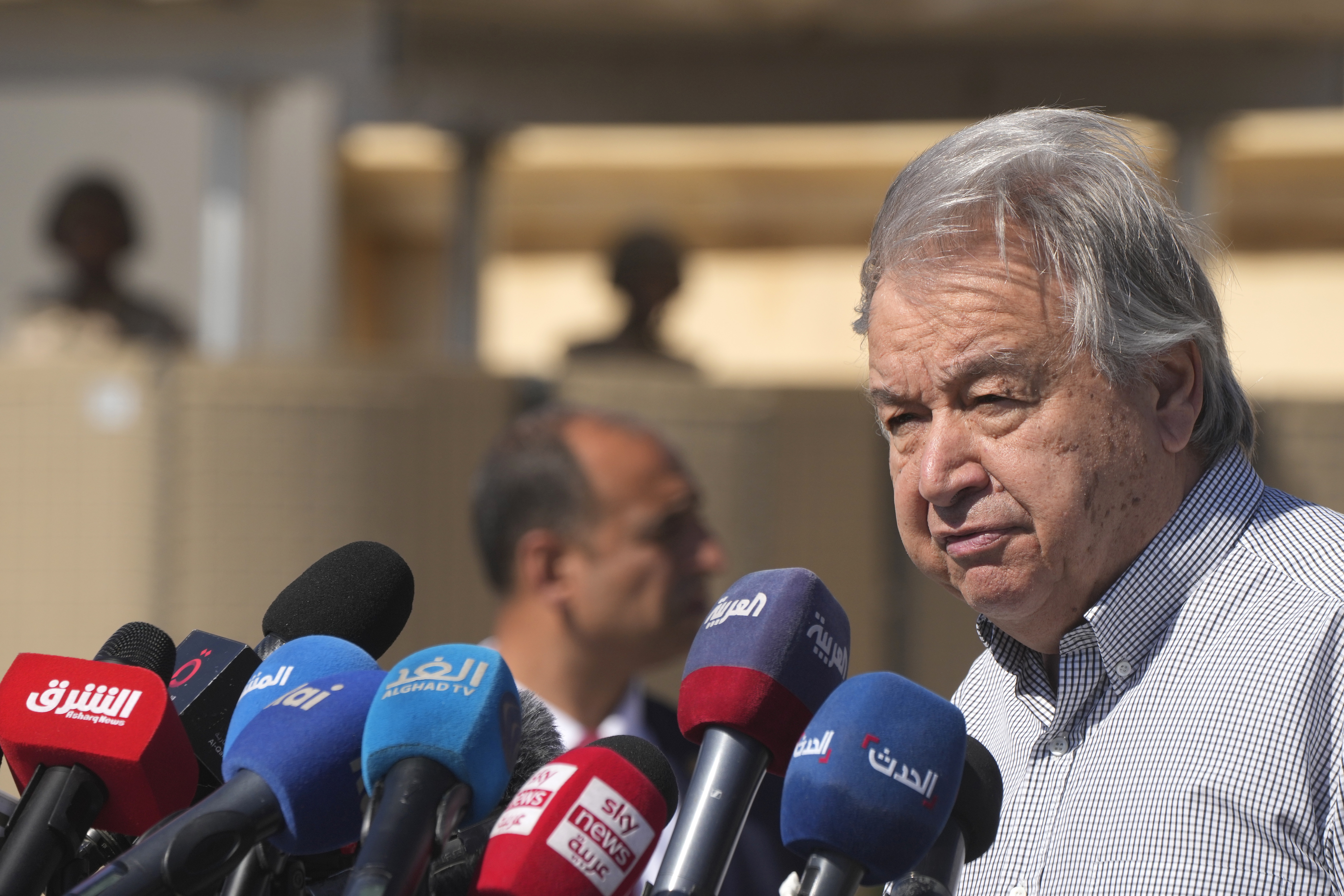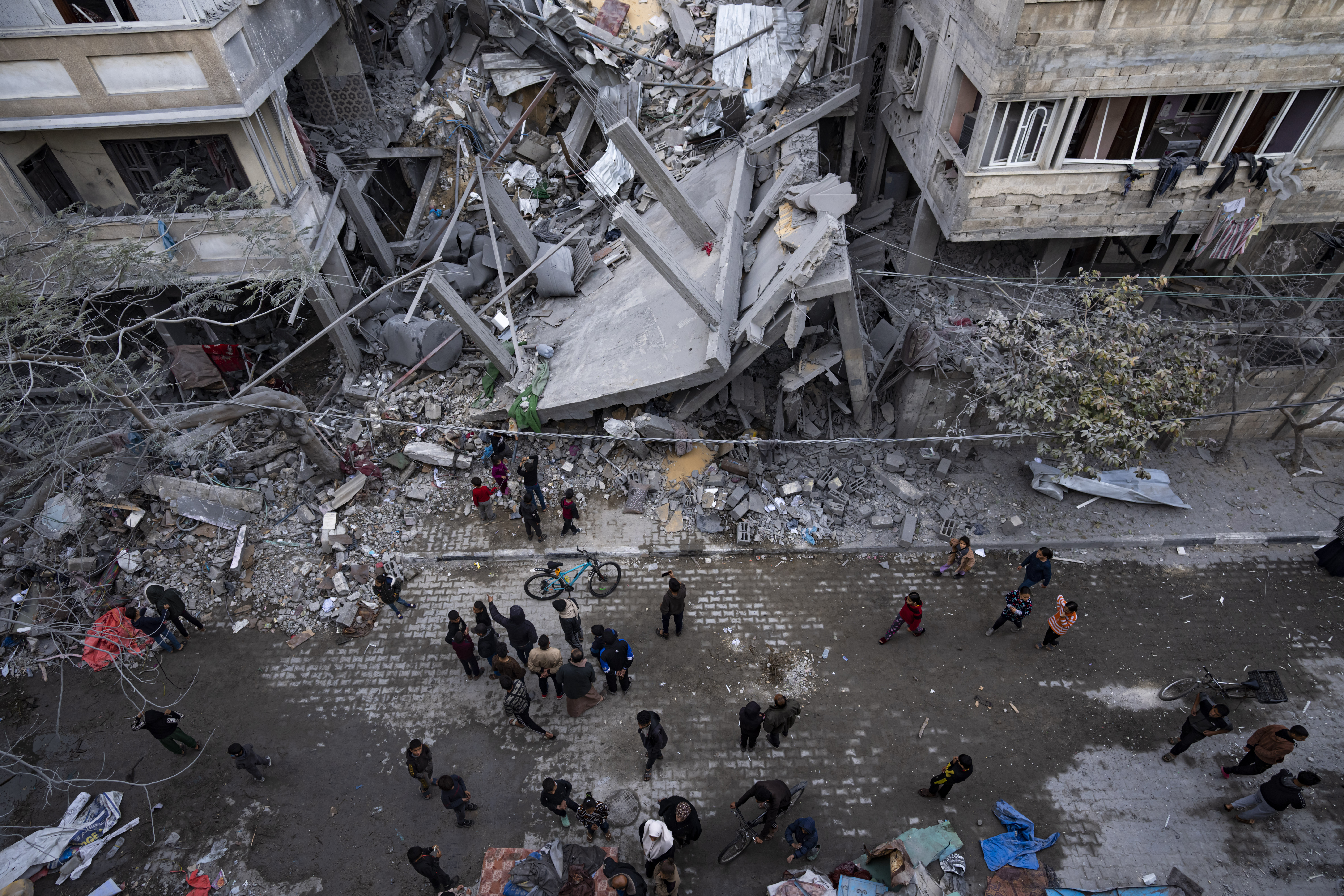
An Israeli airstrike hit a tent camp in the courtyard of a crowded hospital in central Gaza on Sunday, killing two Palestinians and wounding another 15, including journalists working nearby.
An Associated Press reporter filmed the strike and aftermath at Al-Aqsa Martyrs Hospital in Deir al-Balah, where thousands of people have sheltered after fleeing their homes elsewhere in the war-ravaged territory. People including women and children scattered and cried out.
The Israeli military said it struck a command center of the Islamic Jihad militant group and claimed the hospital's functioning was not affected.
Tens of thousands of people have sought shelter in Gaza's hospitals since the start of the war nearly six months ago, viewing them as relatively safe from airstrikes. Israel accuses Hamas and other militants of operating in and around medical facilities, and troops have raided a number of hospitals.
Get top local stories in San Diego delivered to you every morning. Sign up for NBC San Diego's News Headlines newsletter.
Israeli troops have been raiding Shifa Hospital, Gaza's largest, for nearly two weeks and say they have fought heavy battles with militants in and around the medical compound. The military says it has killed scores of fighters, including senior Hamas operatives. It said Sunday it had found numerous weapons hidden there.
Only a third of Gaza's hospitals are even partially functioning, while Israeli strikes kill and wound scores of people every day. Doctors say they are often forced to treat patients on hospital floors because all the beds are taken, and to operate without anesthetic and other crucial medical supplies.
US & World
Those wounded in Sunday's strike lay on Al-Aqsa Martyrs Hospital floor and gasped while being treated, one clutching at the underside of a stretcher that held someone else.
An international team of doctors who recently visited the hospital said they were horrified by the war's gruesome impact on Palestinian children. The World Health Organization director-general, Tedros Adhanom Ghebreyesus, says around 9,000 patients urgently need to be evacuated abroad for lifesaving care.
Not far from Shifa Hospital in Gaza City, dozens of Palestinian Christians gathered at the Holy Family Church to celebrate Easter, with incense wafting through the rare building that appeared untouched by war. “We are here with sadness,” attendee Winnie Tarazi said. About 600 people shelter in the compound.
The war began when Hamas-led militants stormed across the border on Oct. 7 and rampaged across southern Israel, killing some 1,200 people and taking around 250 hostages back to Gaza. Over 100 captives were freed last year in exchange for the release of Palestinians imprisoned by Israel.
Israel responded to the assault with one of the deadliest and most destructive military campaigns in recent history, one that has driven around 80% of Gaza's population of 2.3 million from their homes. More than half of the population is now sheltering in the southern city of Rafah, where Israel plans a ground offensive despite warnings of catastrophe from allies and humanitarian groups.
The United Nations and partners have warned that famine could occur in devastated, largely isolated northern Gaza as early as this month. Humanitarian officials say deliveries by sea and air are not enough and that Israel must allow far more aid by road. Egypt has said thousands of trucks are waiting. The top U.N. court has ordered Israel to open more land crossings and take other measures to address the crisis.
The head of the World Food Program, Cindy McCain, told CBS that WFP was able to get just nine trucks into Gaza on Thursday, the day before the interview was taped. “That’s nothing. We just cannot continue this way,” she said, calling for unrestricted access. “People are going to die otherwise, and they already are dying.”
Gaza’s Health Ministry said Sunday that at least 32,782 Palestinians have been killed since the start of the war, including 77 whose bodies were brought to hospitals over the last 24 hours. The ministry's count does not differentiate between civilians and fighters, but it has said that women and children make up around two-thirds of those killed.
Israel says over one-third of the dead are militants, though it has not provided evidence to support that, and it blames Hamas for civilian casualties because the group operates in residential areas. Gaza health officials have repeatedly denied Israeli claims that militants operate in hospitals.
In the News
The United States, Qatar and Egypt have been trying to broker another cease-fire and hostage release since January. The cease-fire talks resumed in Cairo on Sunday, with little expectation of any breakthrough.
Hamas is demanding that any such agreement lead to an end to the war and the withdrawal of all Israeli forces.
Prime Minister Benjamin Netanyahu has rejected those demands and says Israel will keep fighting until it has destroyed Hamas' military and governing capabilities. But he is under growing pressure to reach a deal from families of the hostages, some of whom have joined mass demonstrations calling for early elections to replace him.
On Saturday night, families of hostages said weekly protests would take to the streets of Israel from now on.
Netanyahu was set to speak to the media before undergoing hernia surgery Sunday.
Magdy reported from Cairo.






